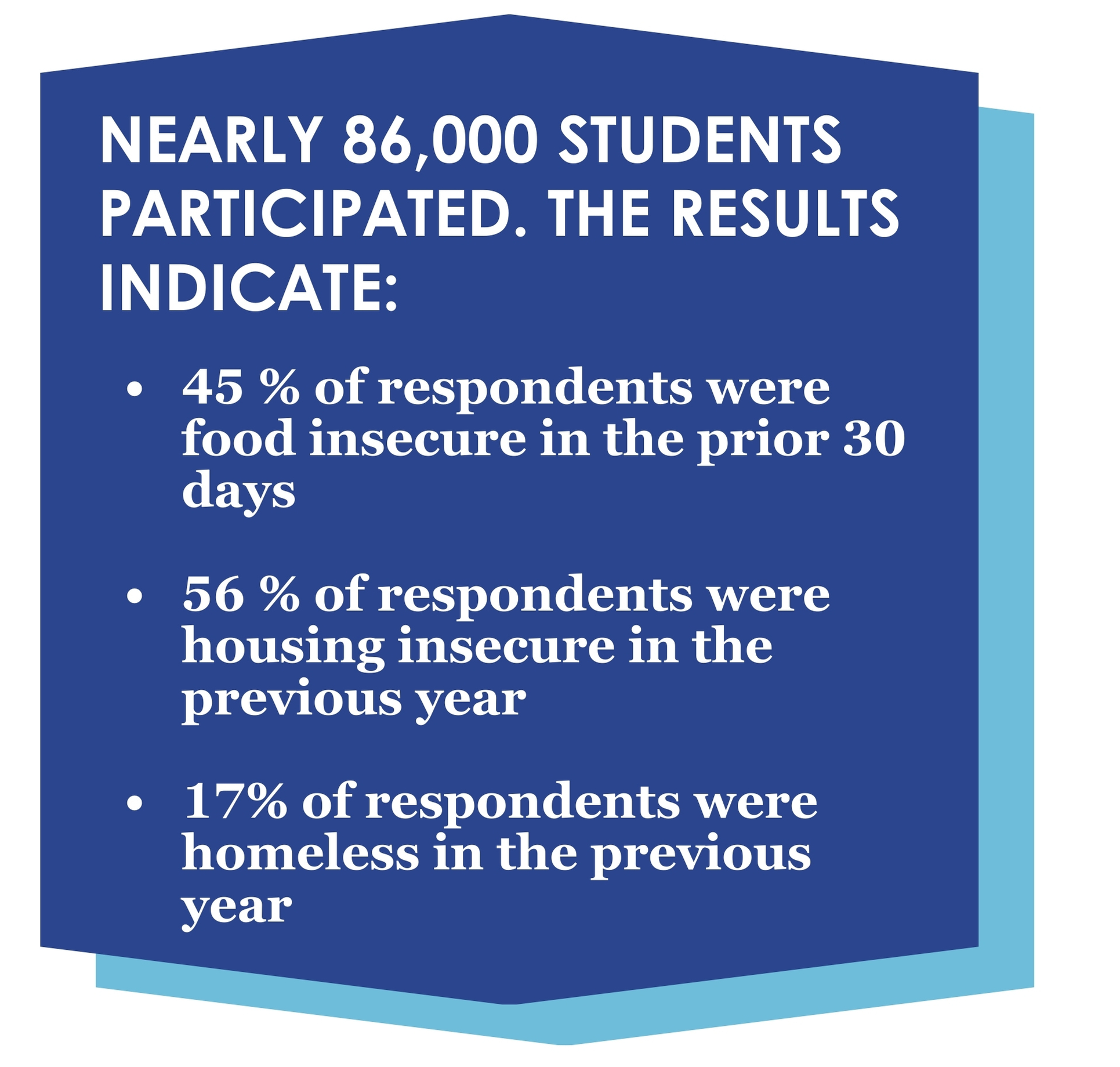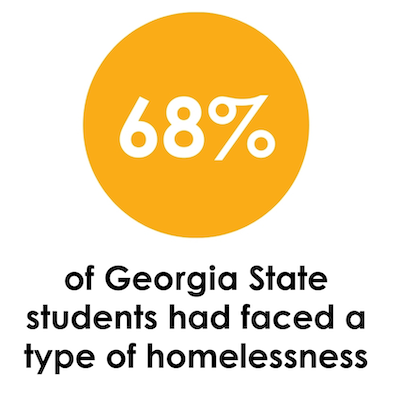It all starts with awareness. Every story is different, but every story can result in a life transformed.
Remember that homelessness can look different and can affect anyone around us.

We don't typically envision college students among those facing homelessness, but sadly, that's the reality. In a survey by The Hope Center for College, Community and Justice, 14% of students attending four-year colleges were affected by homelessness.

From a broader perspective, preliminary research has indicated that every University System of Georgia institution has been affected by homelessness in some way. The most noteworthy schools include: Savannah State University, Kennesaw State University, Georgia State University, Georgia Southern University, Dalton State College, and Columbus State University.
NEARLY 86,000 STUDENTS PARTICIPATED. THE RESULTS INDICATE:
The topic of homelessness is so complex that students who are homeless may not even realize it. They might attend school, but due to the increasing costs of rent and paying their way through school without a support system, they often find themselves in an unstable home. Students are consistently sleeping in their cars, friends' couches, or even in local shelters. This is a serious issue, and without support, this number will continue to rise.

Housing insecurities are also linked with food insecurities.
Students who are homeless also struggle with access to meals. Campus meals are available, but it may not be adequate for the day.
In 2014, graduate students in Nutrition at Georgia State University created the Panther's Pantry. Their studies reveal that 68% of Georgia State students had faced a type of homelessness since starting their studies. The percentage continued to rise during the COVID-19 pandemic. In fact, as of January 2022, Panther's Pantry served 135 in one week. Prior to COVID-19, approximately 11-13 students per week visited the Pantry. 2